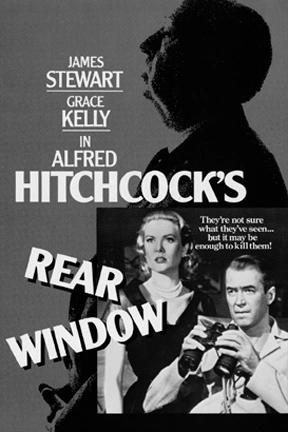The premise of this post is to identify the greatest albums of my lifetime. I allow myself one slot for every year of my existence. At the start of this exercise, I am 21 years old and thus there are 21 original spots. The intent is to expand this list by 1 spot every subsequent year of my life. New slots may be filled by albums released at any point during my life and are not limited to releases from the new year.
(Disclaimer: I have not listened to much modern metal, jazz or classical music, nor much music outside of the Western lexicon. This list is subject to change at any time.)
(Additional disclaimer: Tool’s masterful debut album Undertow was released in 1993, but 2 days prior to my birth. Had it been released on my birthday, the album would rank 12th on the original list.)
Without further ado:

21. Skeptic Goodbye – You Won’t (2012)
I’m allowed one unknown hipster album, right? This album is a weird masterpiece. “Who Knew” is one of the 100 best songs of the new millennium and bizarre instruments appear throughout the track listing. The mixture of pure rock and roll with alternative sentiments and ballads makes this album essential to modern music. If you haven’t yet listened, I implore you to do so at your earliest convenience.

20. OK Computer – Radiohead (1997)
BEFORE YOU START WRITING ANGRY COMMENTS: I think OK Computer is overrated, but it is still a landmark album with several unbelievable tracks (the middle stretch from “Karma Police” to “No Surprises” in particular). I actually like Hail to the Thief a bit better, but I give OK Computer a spot on the list out of respect.

19. Stankonia – OutKast (2000)
“Well doesn’t everybody love the smell of gasoline? Well burn, motherfucker, burn American dreams.” Does any more need to be said when this is the effective opening line of an album? Andre 3000 kills every bar on this album. “Ms. Jackson” is a meaningful classic.

18. Weezer – Weezer (1994)
Best debut album territory. This work is without flaw: simple, impactful, fun. Weezer never quite regained their steam after this album (Pinkerton came close) and now they are essentially a parody of themselves. For shame.

17. White Blood Cells – The White Stripes (2001)
Everyone will clamor for Elephant, but this piece has the better album tracks. “Offend in Every Way” and “I Think I Smell A Rat” are top-notch. “Hotel Yorba” and “We’re Going to Be Friends” have become modern acoustic standards. “Fell In Love With A Girl” still kicks you in the ass just as hard as the first time you played this record. Jack White at the peak of his game.

16. Ready to Die – Notorious B.I.G. (1994)
This album begins with “Things Done Changed.” How prophetic. Bigge’s debut turned hip-hop on its head. “This album is dedicated to all the teachers who told me I’d never amount to nuttin’.” The quote really says it all.

15. Vampire Weekend – Vampire Weekend (2008)
Hate if you must, but know that you are wrong. Vampire Weekend is not only a brisk 34 minutes of aural perfection, but the album revolutionized alternative rock. Rostam Batmanglij finally brought sheer musicality back to pop audiences at a time when radio was becoming increasingly myopic. The album makes me feel like Peter Pan flying over the streets of London in the middle of the night.

14. Enter the Wu-Tang (36 Chambers) – Wu-Tang Clan (1993)
Bring the ruckus! East Coast hip hop has always and forever will be better than West Coast hip hop, due to the well known, but often futilely contested maxim that New York is awesome and Los Angeles isn’t. Wu-Tang helped to establish the feel of East Coast hip hop and made the biggest revolution in the genre since It Takes A Nation of Millions to Hold Us Back.

13. My Beautiful Dark Twisted Fantasy – Kanye West (2010)
Look, I don’t care to ever hear “MONSTER” again, but this album is just shy of perfect. Only Kanye would ask Elton John (an all-time favorite musician of mine) to play a relatively simple piano part on a 1 minute interlude. Such is the genius of Mr. West, Mr. West. “Gorgeous” may be my favorite Yeezy song and Rick Ross absolutely murders his feature on “Devil In A New Dress.”

12. Crooked Rain, Crooked Rain – Pavement (1994)
It is well-established in alt-rock circles that Stephen Malkmus is an ornery, minimalist genius. Pavement was always Velvets-lite, but they were no less enjoyable. Lyrical imagery groaned over simple-yet-stunning guitar lines, Malkmus & co. make the most of their and my time. Aside from the classics “Cut Your Hair” and “Gold Soundz,” “Range Life” and particularly “Unfair” strike emotional chords with me.

11. If You’re Feeling Sinister – Belle & Sebastian (1996)
Dare I say it?… The most underrated band of the last 20 years. If You’re Feeling Sinister has no low point. “Seeing Other People” is unlike any song I’ve ever heard. “Me and the Major” is blissfully hectic. The lyrics of the title track cut to the bone. “Get Me Away from Here, I’m Dying” is as self-flagellating as the name suggests. For my favorite Glaswegians, I offer my favorite logical fallacy: no true Scotsman dislikes this album.

10. good kid, m.A.A.d. city – Kendrick Lamar (2012)
The greatest Grammy travesty since Jethro Tull in ’89 was Macklemore & Ryan Lewis beating out this instant classic with The Heist, a bubble gum faux-rap album with a few great pop tracks, but nothing truly impressive. good kid, M.A.A.d. city will go down in history as a seminal gritty hip hop album, the Straight Outta Compton to softy Drake’s Raising Hell. Kendrick could be brought up on human rights violations for the way he assassinated the beat on “Backseat Freestyle.” With this album, K-Dot took over Nas’ place as rap’s greatest storyteller.

9. Funeral – Arcade Fire (2004)
There is no more signature guitar riff this millennium than the guttural opening of “Wake Up.” This album is more a work of art than a statement about anything in particular. Canada’s greatest product since Gordon.

8. Mellon Collie and the Infinite Sadness – Smashing Pumpkins (1995)
A double album?!? In 1995?!? Sublime (the word, not the stoner ska band). “Zero,” “Bullet With Butterfly Wings,” “1979,” “Tonight, Tonight,” “Thirty-Three.” These 5 radio-friendly songs alone would make a top 10 album, let alone the numerous classic album tracks, ranging in style from noise rock assaults (“Bodies,” “Tales of a Scorched Earth”) to whimsical love songs (“Cupid de Locke,” “Lily (My One and Only)”.) [<— This is a punctuation mess] Mellon Collie seems infinitely textured and infinitely relistenable. I gain a new appreciation with every visit to Billy Corgan’s madness.

7. Yankee Hotel Foxtrot – Wilco (2002)
Oh thank god for alt-country. Jeff Tweedy saved us in the post-9/11 musical climate of Alan Jacksons and Toby Keiths. “Tall buildings shake, voices escape singing sad, sad songs.” The album was recorded prior to the attacks, but it’s nearly impossible to not retroactively identify the themes with the suffering. Simply put, Wilco kicks ass.

6. Illmatic– Nas (1994)
East Coast represent! We’ve reached the Rushmore of all-time hip hop albums. “Halftime,” “Life’s A Bitch,” “One Time 4 Your Mind.” Nas is the gangsta Slick Rick, a masterful storyteller painting New York a loving shade of black with a wide brush. “I don’t sleep cuz sleep is the cousin of death.” How could somebody sleep on the brink of releasing an album this good?

5. Anodyne – Uncle Tupelo (1993)
The last release before Jay Farrar and Jeff Tweedy went all Lennon-McCartney and broke up the band. Uncle Tupelo remains one of the most influential musical acts of all-time and they are at their best in this magnum opus, perhaps the last great true country album. The first 8 tracks on this album are perfect jewels and “No Sense In Lovin'” anchors the back third. I would lament the passing of Uncle Tupelo daily were it not for the glory of Son Volt and Wilco.

4. In the Aeroplane Over the Sea – Neutral Milk Hotel (1998)
If you’ve somehow never heard this album, stop what you’re doing and listen to it 4 times in a row. You’ll either want to strangle Jeff Mangum, or fall madly in love with his beautiful sadness. If you’re the former, you’re simply wrong. If you’re the latter, welcome to the club. We meet on Thursdays. I’ll see you there.

3. channel ORANGE – Frank Ocean (2012)
The best R&B album since Off the Wall. Frank Ocean is more than a crooner, he’s a songwriting genius. Malay’s producing is impeccable. Andre 3-Stacks and Earl Sweatshirt deliver heart-pounding verses. The themes of the album are timeless: sex, unrequited love, drug addiction, young adult apathy. Frank Ocean would be amazing in any time period. Thank goodness he was born into mine.

2. Kid A – Radiohead (2000)
Radiohead’s best album, a symphonic, frightening amalgam of Elvis Costello, Kraftwerk and Free Jazz. “Optimistic” is one of the 10 best songs of the millennium. A mind-boggling, gorgeous masterpiece.

1. Late Registration – Kanye West (2005)
The Thriller of hip hop, but twice as good. Late Registration ranks with The Beatles, Animals and Give ‘Em Enough Rope: not just the greatest accomplishment of its genre, but an all-time pantheon album. Nobody had heard anything quite like The College Dropout, but Kanye’s debut was only an appetizer for this entree. Yeezy somehow improved Curtis Mayfield’s seemingly perfect “Move On Up,” made me tolerate Lupe Fiasco and got a good verse out of the usually pathetic Paul Wall. If those accomplishments aren’t worthy of the #1 spot on this list, I’m not sure what would be.
Near misses/Possible future inductees: Fashion Nugget (Cake), The Rip Tide (Beirut), Downward Spiral (Nine Inch Nails), Dookie (Green Day), Odelay (Beck), Reasonable Doubt (Jay-Z), Doggystyle (Snoop Doggy Dogg), O.C.M.S. (Old Crow Medicine Show), Illinois (Sufjan Stevens), The Way We Move (Langhorne Slim & the Law.)




























